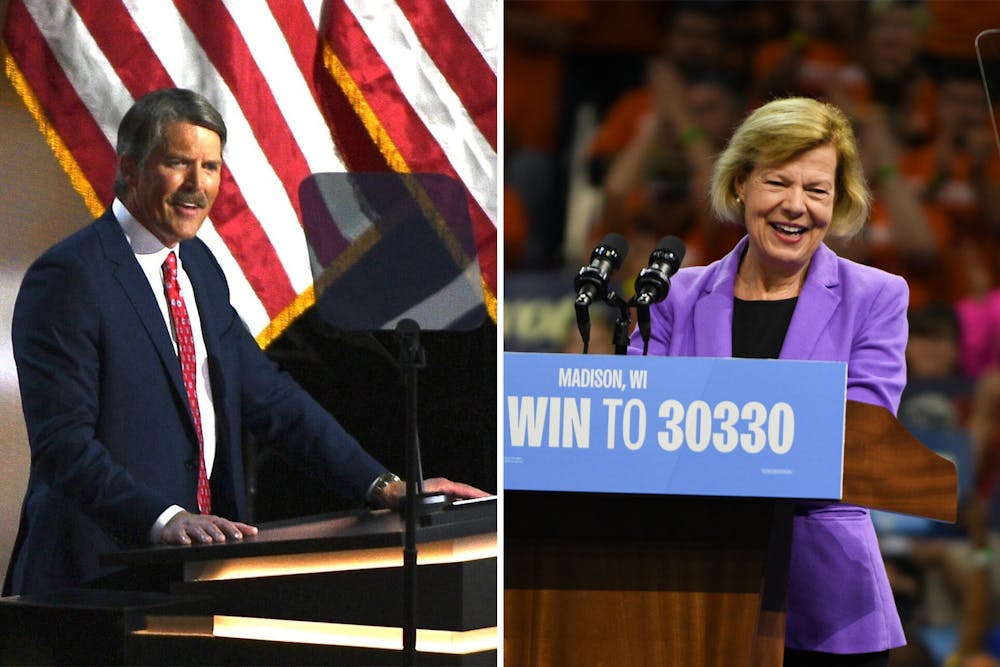The Nov. 5 election is a little over a week away, and Wisconsin’s U.S. Senate race remains tight.
Incumbent Democratic U.S. Sen. Tammy Baldwin and challenger Republican and multimillionaire businessman Eric Hovde are neck-and-neck, polling remaining in a statistical tie.
Baldwin has raised over $38 million in the last two years, the vast majority of it from individual contributions. In contrast, Hovde has raised just over $28 million, mostly from the $20 million in loans Hovde made to his committee according to recent FEC filings.
Among individual contributors, Baldwin’s supporters tend to make smaller donations, while Hovde’s backers contribute relatively fewer but larger amounts. The majority of Baldwin donors made contributions of $200 or less, while many Hovde donors donated over $2,000.

Baldwin received $29 million from individual donations compared to Hovde's $7 million, and given the close polling, might suggest that Hovde’s supporters are less willing to contribute monetarily.
University of Wisconsin-La Crosse political science professor Anthony Chergosky told Wisconsin Public Radio candidates who run self-funded races often face voters who decline to contribute their money to such a campaign.
“How do you convince someone to donate to your campaign when you are already putting millions of dollars from your own bank account into the campaign?” Chergosky said.
In 2022, Republican Tim Michels used a similar funding strategy, pouring nearly $19 million of his own money into his campaign. Michels lost to Democratic Gov. Tony Evers in the general election.
As of the latest campaign finance reports published Oct. 16, Baldwin and Hoved retain over $5 million in cash on hand, that is total receipts minus total expenditures. In the final days before the election, cash in a candidate’s war chest becomes essential for appealing to the last undecided voters who could ultimately decide the outcome.
Successful political campaigns cost money. When races get tight, campaigns rush to raise and spend large sums to get the word out.
The Federal Election Commission (FEC) limits the amount individuals can contribute to a candidate's campaigns to $3,300 per election (a primary, general, runoff and special election are each considered separate elections).
Candidate contributions to their own campaigns are not subject to any limits, candidates are also able to loan their committee an unlimited amount. Candidates may choose to repay this debt, or they have the option to forgive all or a part of the loan.
Ty Javier is a senior staff writer and photographer at The Daily Cardinal. He is an Economics major and has specialized in university and campaign finances, economic policy and transit.






